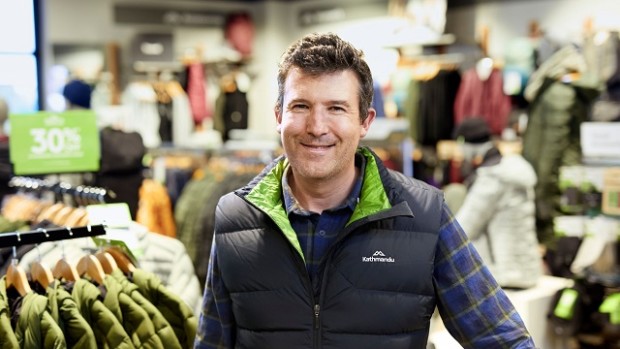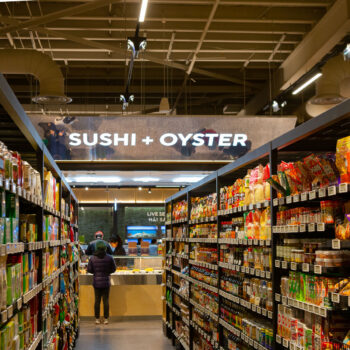
Kathmandu and Adairs have joined Accent Group and Apple in gradually reopening physical stores across Australia after weeks of trading online only.
Kathmandu recently reopened most of its stores in New South Wales and Queensland on a trial basis, and expects the majority of Kathmandu and Rip Curl stores in Australia to be open by the end of this week. Adairs said it will reopen stores throughout May and June, with an initial focus on its larger format stores.
Both retailers said they are implementing new safety protocols, such as limiting the number of customers in-store, providing hand sanitiser and other protective items and only accepting contactless payments, to ensure staff and customer safety going forward.
“Our staged store openings reflect our ‘safety first’ approach as we welcome back our team and customers into stores,” Mark Ronan, Adairs CEO and MD, said in a statement released to the ASX on Monday.
“There is still a long way to go, however the actions and contributions made to date put us in a strong position to navigate this changing environment.”
Turning of the tide
The reopenings point to a turning of the tide since late March, when dozens of major retail chains announced mass store closures after Australians were told to stay home except for “essential” reasons as part of the Government’s effort to stop the spread of coronavirus.
Since then, the number of new coronavirus cases has dropped significantly, and some states have started to ease restrictions.
NSW residents are now allowed to visit other households in groups of up to two adults and their dependent children, and Queensland residents are free to leave their home for recreational purposes, including non-essential shopping, as long as they don’t travel more than 50km.
Consumer spending and foot traffic are also beginning to show signs of recovery. Total credit and debit card spending for the two weeks to May 1, 2020, was down 10 per cent from the same period last year, according to CBA data. That’s an improvement from the previous analysis, which showed a 20 per cent year-on-year drop in spending for the two weeks to mid-April.
“Our analysis offers a glimmer of hope that we may be past the lowest point in terms of people spending less,” said Gareth Aird, CBA’s head of Australian economics.
“Although people are continuing to spend less [than the same period last year], the rate of decline is slowing.”
And foot traffic in shopping centres in the week commencing April 20, 2020, was down just 0.7 per cent on the previous week, though still sharply down (85 per cent) from the same period last year.
Store closures hit sales
These are positive signs for multichannel retailers like Adairs and Kathmandu, which have taken a significant sales hit during the store closures, despite some shoppers shifting online.
Adairs Australia’s total sales for the five weeks ending May 3 were down 37 per cent year on year, despite a 221 per cent increase in online sales in the period. The homewares retailer temporarily closed its stores from March 29.
Kathmandu also saw a rise in its e-commerce business in April, with group online sales 2.5 to 3 times higher than the same period last year. The biggest increase was in Australia, Kathmandu’s largest market, where it temporarily closed stores on March 27. The outdoor retailer confirmed the store closures have had a “material adverse impact” on its FY20 earnings.
But both retailers said they are in a strong financial position, even if the road to recovery will be long and uncertain.
Kathamandu Group CEO Xavier Simonet said he expects consumer demand and international travel to remain subdued in the medium term as a result of the ongoing economic and social impacts of COVID-19.
“However, there is a clear opportunity opportunity to answer the needs of our brands’ core consumers as they engage in active pursuits locally, on the beach, in the mountains and the outdoors,” he said in a statement released to the ASX on Tuesday.
“In this context, we will maintain a strategy focused on brand, product and customer, while continuing to diversify the business and accelerate digital transformation.”
Strong financial footing
Kathmandu recently completed a fully underwritten NZ$207 million equity raising that strengthened its balance sheet and liquidity position, and trimmed around NZ$15 million from its operating expenses.
The outdoor retailer is also utilising government subsidies in Australia, New Zealand and Europe, negotiating rental costs with landlord partners, delaying and cancelling existing inventory orders where possible and cancelling or deferring all non-essential capital projects, including store refurbishments.
Adairs is also utilising the JobKeeper and Wage Subsidy Scheme programs in Australia and New Zealand, respectively, and negotiating with landlords.
The retailer said it does not currently see a need for additional capital given its strong balance sheet and liquidity and significant headroom within its banking covenants.
Adairs stores remain temporarily closed in New Zealand, while Mocka, the retailer’s online-only furniture and homewares business, reopened on April 28, when New Zealand entered Alert Level 3.
Kathmandu and Rip Curl stores in New Zealand, North America, Europe, Brazil and Japan remain closed and will reopen as soon as Government directives in each jurisdiction allow.






